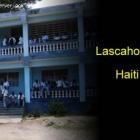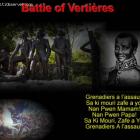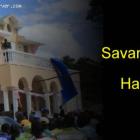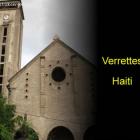History - September 18, 1792 - Second Civil Commission arrived in Cap-Français
ADVERTISEMENT
Saint-Dominique was the richest French colony, because it was the center from where half of the world's sugar was produced and this was achieved with heavy exploitation of African slaves imported from Africa. Its history is inextricably linked to Haiti's colonial past and struggle for independence. In 1791, Cap-Haïtien was captured by Toussaint L'Ouverture, the leader of the slave rebellion and became the center of slave uprisings.
Cap Francais also served as an important area during and after the wars for independence against France in 1804.
The city is often referred as the incubator of anti-establishment movements. Recently, from February 5-29, 2004, the city was taken over by militants who opposed the rule of the Haïtian president Jean-Bertrand Aristide. The city has been razed to the ground five times by man and nature in a similar way, and had four changes of name. Cap-Haïtien, the second largest Haitian city is known by many names such as Le Cap or Au Cap, Cap�'Français, Cap�'Henri.
A new highway has reduced traveling time between Port-au-Prince and Cap-Haïtien from 11 to 3 hours and effectively opened the area to tourism. Historic Haitian town Milot is located only 12 miles away from Cap-Haïtien. Milot was Haiti's first capital under the self-proclaimed King Henri Christophe, who ascended to power in 1807 and renamed Cap�'Français as Cap�'Henri.
Read more: Cap-Haitian, Martelly - Cap-Haitian, Saint Domingue, Newsletter Articles, History
« The French Revolution in Saint-Domingue (Haiti) from 1788 to 1790 | Main | Haiti played a critical role in US independence »
Leave a Reply
Name (required) E-mail (required, will not be published)
» »
Our objective is to share with you news and information about Haiti and the people of Haiti. Traditions, habits and the way we were or grew are alive in this site. We highly recommend that you Subscribe to our Newsletter and also share with us some of the things that are memorable and made us unique people.


 Life After Death
Life After Death  Lascahobas, Haiti
Lascahobas, Haiti  Battle of Vertieres
Battle of Vertieres  The Town of Savanette, Haiti
The Town of Savanette, Haiti  Verrettes, Haiti
Verrettes, Haiti